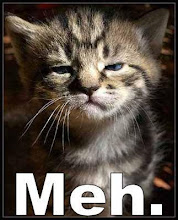
Our history and many other countries are guilty of placing value on individuals based on their looks, skills, intelligence, or even the family from which they are born. For instance, in India their culture is based on a caste system, which is still evident today regardless of efforts to modernize them. Although it is unspoken of, social classes still exist today in many different environments. No matter how advanced a country, community, or even business may be, there is inevitably a quite social class system. Author Sara Gruen examines social classes in her novel Water for Elephants. The story is about the social classes of a traveling circus in the 1930's, as well as in the present day. The book highlights the cruel treatment of lower classes and the importance of one's worth based on their social class status.

The main character and narrator, ninety-three year old Jacob Jankowski, reminisces about his old days of traveling with The Bencini Brothers Most Spectacular Show On Earth. As a young man Jacob experiences a tragic loss. He decides to run away from it all and he jumps on a train passing by. Unaware its a traveling circus train, Jacob was on a train that will forever change his life. From the moment that Jacob jumps the train the social classes are evident. He begins as a stowaway on the verge of being thrown off the train. He is nothing more than a bum, or "rube", to everyone, the lowest of social classes, not fit to be part of them, but he eventually befriends the right people and reveals his background, which in return moves him up to higher social classes. As he spends more time with the traveling circus, he realizes the many different social classes there are.

The train that Jacob jumped aboard was the Flying Squadron of the Benzini Brothers. This train housed the lowest people of the social classes. Code names were given to the worker of each class to distinguish who they are. Jacob was regarded as a "first of may," meaning he was new and had to earn everyone's respect. His job in the beginning distinguishes his place on the social ladder. He is shoveling animal droppings and filling any small job that has to be done. After he encounters the big boss Uncle Al and August and reveals to them that he is a veterinarian, he becomes part of the working class, also known as "roustabouts." His housing quarters characterized his status among the social classes. Jacob quotes, "There's a clear hierarchy: the closer to the back, the more impressive the quarters. Uncle Al himself climbs from a car right in front of the caboose. I can't help but notice that Kinko and I are the human occupants closest to the engine." The performers, also referred to as "kinkers," and bosses are the top of the social class and are treated as such. Kinko is a unique victim of the social structre. He is classified as a performer and doesn't want anything to do with the lower classes. However, he is a dwarf and is treated as the bottom class of the performers. That is why he is located in the front of the train with Jacob. Eating areas are also designated to people due to their social class. Tables draped with cloth and flowers are assigned to the performer and bosses. Bare tables stacked end to end on the opposite side of the train are set up for the lower class.
As Jacob slowly moved up the social ladder he was treated with more respect and earned more privileges. He was first forced to sleep in the corner on a moldy old blanket. After he proved himself with the animals the blanket was replaced with a bed roll and blankets. He eventually is befriended by August and is invited to eat with them at the upper class table. This becomes Jacob's assigned seat. One morning he decides to eat with Walter because he wants to avoid Marlena and August. Walter stops him and says, "You can't. Everyone has assigned spots. Besides, you'd be coming down in the world." Walter's reaction to Jacob's decision proves that once someone has established their class, that is where they belong. If they don't accept it or don't act accordingly, they risk being out casted by the group. Some of the other privileges Jacob receives includes going into town to clubs and restaurants, nicer clothes, and liquor.
When Jacob grows old in the present day he is still subject to the mistreatment and stereotypes of social classes. His social status is lowered once again. He is forced to live in a nursing home because his children consider him a burden. The nursing home also treats Jacob poorly, like he is a burden to them as well. His requests are ignored and when does not act accordingly, he is given pills by the doctors so he will behave. Even his food is decided for him. He has no rights or privileges in this class structure of doctors, nurses, and patients.
It seems that no matter what, people are doomed to be classified in social structures. Every age, gender, nationality, or occupation, in every environment or community, are subject to some sort of class that either grants them benefits or mistreats them. Classifying people is a form of discrimination. Society will never change unless people become more empathetic and welcoming of different people. Knowledge of different cultures, societies, beliefs, and personalities will open doors to a peaceful and fair world.



